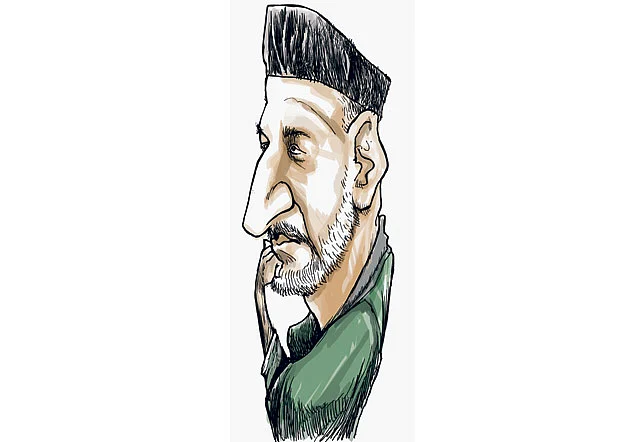If nothing else, the London conference on Afghanistan concentrated minds. It defined the parameters of success and failure. It went some way towards charting a co-operative path out of the morass after eight years of often direction-less drift. It dangled the prospect of a longed-for peace. But it provided no answer to the only question that really matters: will the new strategy work?
The war's western principals have now made clear how they plan to proceed, what they expect from neighbouring countries and other interested parties, and roughly how long they think it will take. Afghan President Hamid Karzai, no great democrat but a great political survivor, completed his latest rehabilitation. The key regional player, Pakistan, renewed its pro-western vows just as divorce beckoned.
But Taliban leaders, looking down from their Hindu Kush fastnesses, eyes squinting along the sights of a figurative jezail, stuck stubbornly to the old script. "Invading forces" must withdraw before there could be any talk of talks, they said. Thursday's conference aimed to extend the occupation of Afghanistan and was a "waste of time". And offers to rehabilitate Talib foot soldiers were an infidel "trick".
Important things changed in London nonetheless. Karzai's prominent appeal to Saudi Arabia's King Abdullah, presumably agreed in advance, asking him to guide and assist the proposed new national council for peace, reconciliation and reintegration, was a sharp move. Potential Saudi leverage over the militants, going back to the Soviet invasion, is unmatched.
The London message to all parties the need to commit seems to have been heard at last.
Pakistan, too, is back on side after a difficult year of spillover political and physical insecurity in Islamabad, widening public rifts with the Obama administration, rows over US cross-border drone attacks, and growing resistance to Washington's demands for more, bigger offensives in the ungoverned Afghan border badlands.
Improved relations
Pakistan's relations with Kabul are much improved following the departure of its former president, Pervez Musharraf. Islamabad also seems to have belatedly recognised that its aim of curbing Indian influence in Afghanistan is best served by supporting the current, western-backed government, especially given the prospect, post-London, of power-sharing with Taliban elements friendly to, or schooled by, Pakistan.
Interviewed before the conference, Foreign Minister Shah Mahmoud Quraishi said Pakistan was ready and able to mediate any future talks with the Taliban. "Pakistan is perhaps better placed than any other country in the world to support Afghan reintegration and reconciliation. Why? We speak the same language, we have common tribes, a common religion, we have a commonality of history, culture and tradition," he said.
These signs of increased, positive engagement by regional countries, enhanced by last week's neighbourhood get-together in Istanbul, are the fruit, in part, of much lobbying by British Foreign Secretary David Miliband. They signal acceptance of the long-standing British argument that Afghanistan poses regional problems that require collective, self-generated regional answers. Iran's decision to boycott the conference does not necessarily invalidate that assessment and may in fact reinforce it.
The regional approach, coupled with the current heavy emphasis on Afghan self-reliance in security matters, a progressive reconciliation and reintegration process, and ongoing financial, developmental and institutional assistance, is the way Britain and the US hope finally, and in the not too distant future, to extract their military legions. Like past empires, they have learned the hard way that nobody wins in Afghanistan. London confirmed the best they now hope for is an orderly and honourable retreat, scattering alms as they leave.
Yet to succeed, even this limited, stripped-down objective must negotiate a string of booby-traps both numerous and daunting. Karzai's suggestion that it may be 15 years before Afghanistan's security forces achieve reliable self-sufficiency seems more realistic than the more ambitious transition targets touted by Gordon Brown. Likewise, rooting out corruption, inculcating good governance, and creating a functioning national state is an incredibly tall order in the political time available.
In the regional context, India's refusal or inability to respond substantively to efforts to reboot its peace process with Pakistan is deeply troubling for western policymakers. Another Mumbai-style terrorist attack, blamed on Pakistan-based militants, would spark "limited war" between the two countries, most probably in Kashmir, a well-placed diplomat predicted last week. That could spell disaster for the Afghan strategy. Yet it seems to some that India is waiting for the bombers to strike again.
Most tendentious of all is the dazzling assumption, propagated by Brown on Friday and Barack Obama in his State of the Union address, that the Afghan troop surge will work in the requisite timeframe, that the enemy will be forced onto the back foot, that Taliban ideologues and their Al Qaida allies can be separated from the majority of "foot soldiers", and that they will conclude that it is in their interest to sue for peace.
Nothing in the past two years, a time of significant Taliban advances, justifies any such unqualified conclusion. It's a live hope, not a dead certainty. Because Afghanistan is different, there can be absolutely no guarantee of success. Who's saying that? General David Petraeus, architect of the original Iraq surge, that's who. And he should know.
Sign up for the Daily Briefing
Get the latest news and updates straight to your inbox
Network Links
GN StoreDownload our app
© Al Nisr Publishing LLC 2026. All rights reserved.
